Chocho for the People | Nourishing the Body and Revitalizing the Soil
From the Andes Mountains to the U.S. Stores, Santa Barbara–Based Mikuna Is Shaking Up the Protein Powder Market
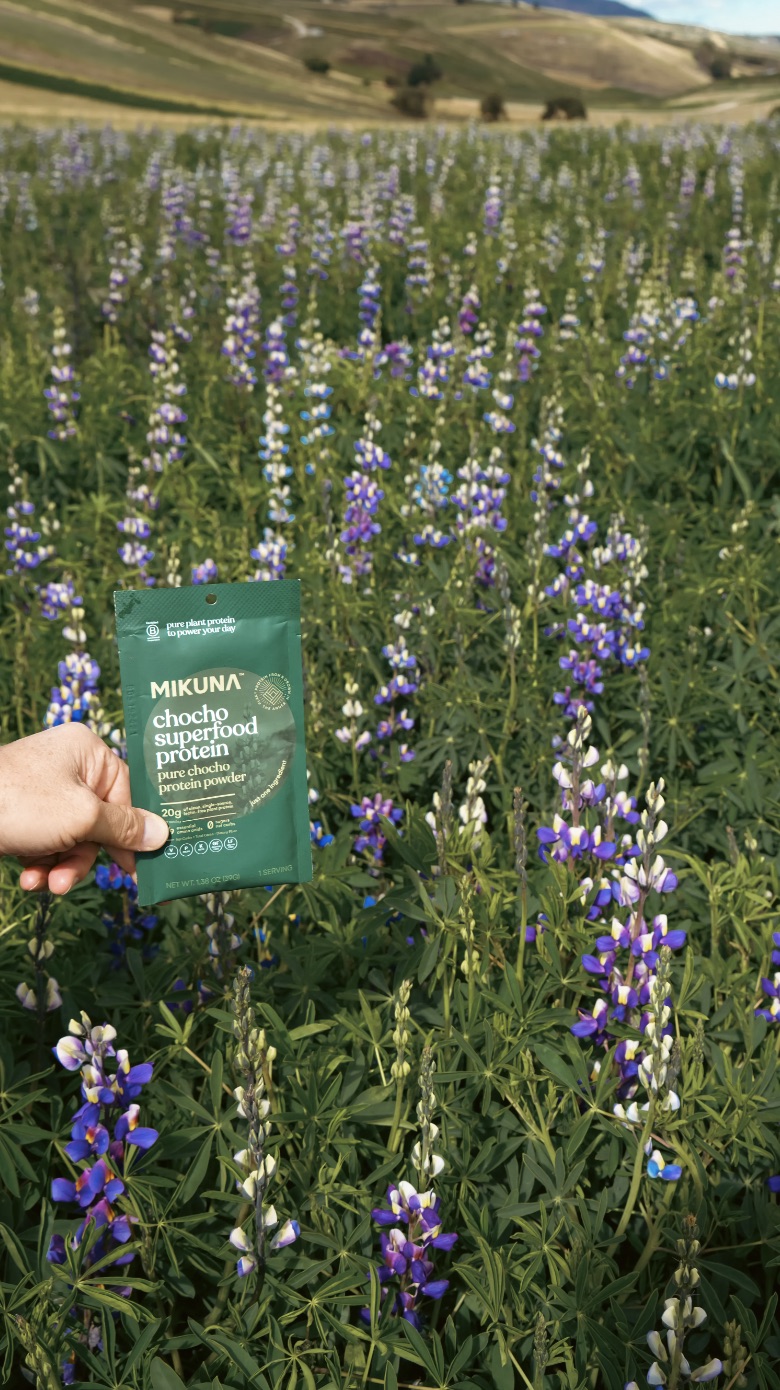
A few years ago, a vibrant purple lupin by the name of chocho captivated the attention of Ricky Echanique, a fifth-generation Ecuadorian farmer, shifting his life and the lives of the farmers who have cultivated this cover crop for centuries.
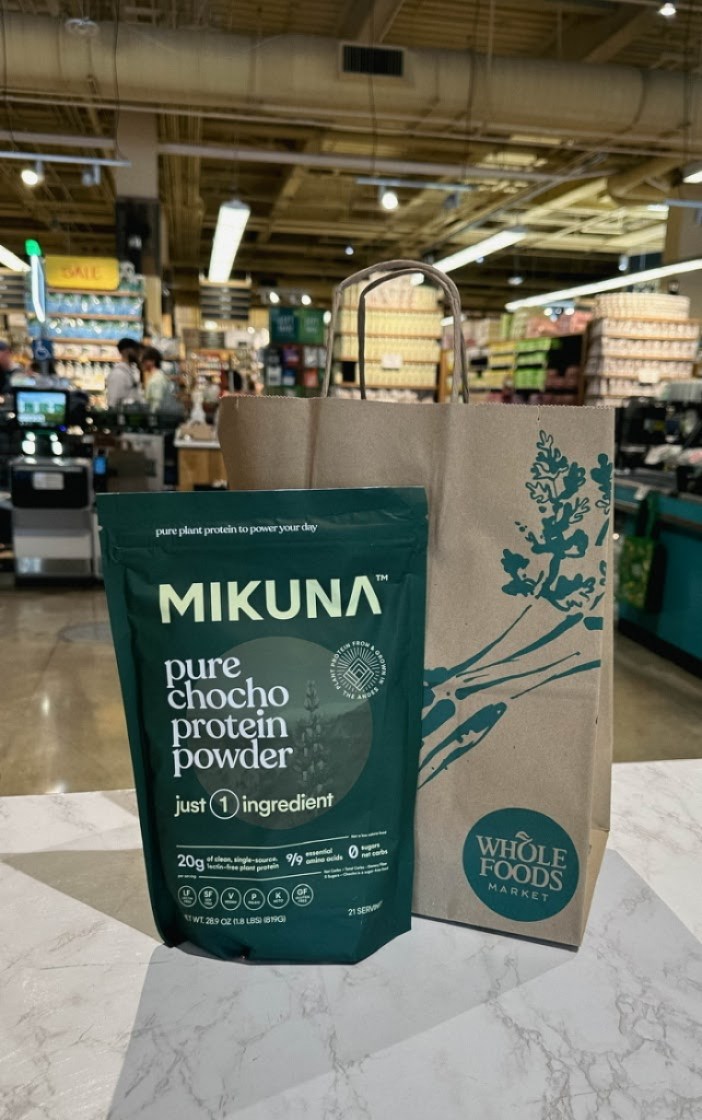
Today, Echanique and his partner, Lauren Henno, have established the plant protein company Mikuna, becoming a bridge between Ecuadorian farmers and U.S. markets. The earthy Mikuna packaging seen at Whole Foods, Erewhon, and Backyard Bowls represents a deep-rooted history in regenerative agriculture and Indigenous knowledge.
Echanique was raised in Ecuador, where he competed in tennis at a professional level at age 16, training hard to develop his skills. “My body always struggled with the protein supplements pushed on me by my coaches when I was training; it felt bloated and irritated,” he said. He moved to the U.S. to study environmental science, graduating from UC Santa Barbara in 2009.
“I found a second home in Santa Barbara, playing tennis occasionally, embracing a love for surfing, and keeping my body healthy,” Echanique said with a big smile. He met Henno, a Santa Ynez local, falling for her almost at first sight, and stayed in Santa Barbara, going home to Ecuador frequently.
A detour during a visit in 2016 changed the trajectory of his life.
A series of family events took a huge toll on Echanique’s health, and he found himself bedridden and unable to find relief in Western medicine. He decided to study and experiment with the plethora of medicinal plants in the Amazon with the Shuar tribe. On one visit, he traveled across the Amazon and through the Andean mountains, stopping at the familiar purple lupin fields of chocho. A combination of what he had learned from Indigenous people and pure curiosity led him to consume the chocho bean as a powder.
“My body felt notably nourished and healthy after consuming chocho in this way,” Echanique said. “The ‘aha!’ moment to invest in this project was learning a combination of all chocho could offer — grown regeneratively by Indigenous communities, with no herbicides, no pesticides, a nutritional powerhouse, great for the soil and people. What could be better?” he said.
Grown in the high Andean mountains of Ecuador and Northern Peru, chocho has been a staple protein source for the inhabitants of the region for thousands of years. Lupinus mutabilis, or chocho, flourished where meat and fish protein were scarce before the Spanish invasion in the 1500s. Chocho was prominent in the diet of the Inca, and even before that, the first evidence of its cultivation was discovered as seeds in the tombs of the Nazca culture and as represented on Tiahuanaco ceramics in pre-Incan Peru. The conquistadors, however, categorized this legume as “poor man’s food,” replacing it with broad, or fava, beans in the crop rotation.

The unique combination of high altitude, a latitude closest to the sun on the equator, and generations of Indigenous farmers in the Andean mountains forge the perfect micro-climate for the purple chocho lupin. “The more drought, the better for chocho,” Echanique explained. “Up in the high altitude of 9,000-14,000 feet, the mountains are bare and high yields of this lupin flourish.”
No supply chain or demand existed for chocho as a protein powder when Echanique first tried it, but it has since gained some high-profile recognition for its multitude of benefits. Today Mikuna is used by professional athletes such as Mick Fanning, a three-time world champion surfer; Letícia Bufoni, a six-time X Games gold medalist skateboarder; and professional surfer Taylor Knox.
As a food, chocho is extremely nutrient-dense and packed with amino acids, protein, fiber, iron, and calcium. It is easier to digest than other members of the legume family, such as peas and beans, as it is lectin-free and gluten-free, while having the highest source of plant protein per serving. Some research shows that linoleic acids in chocho are beneficial to pregnancy and postpartum recovery, lowering blood pressure and reducing the risk of cardiovascular disease.
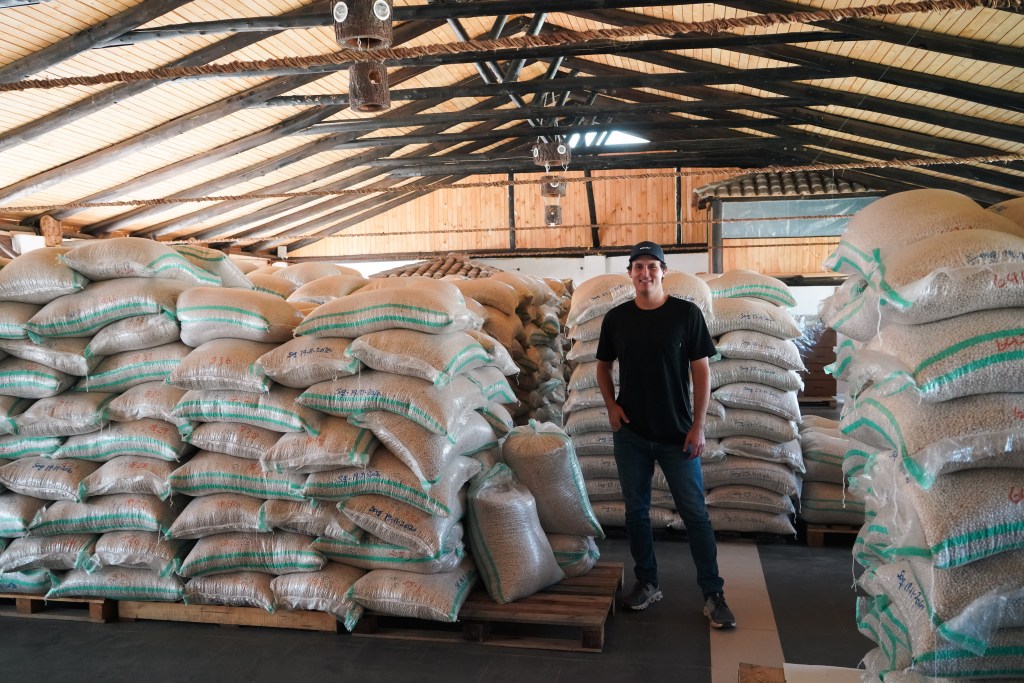
Chocho’s nutritional value is not lost on the Ecuadorian government. In 2017, the Sustainable Funds program allocated money toward rejuvenating the cultivation of chocho in lower-income villages to combat protein scarcity in villages like Imbabura in northern Ecuador.
Chocho is traditionally used in Ecuadorian street foods and salads, and also in a Ceviche de Chocho, a vegetarian ceviche. Soaking, sprouting, and lightly toasting make the legume bioavailable, which is how the Mikuna processes the protein powder.


After Echanique stopped by the Independent offices to drop off some Mikuna protein powder, I tried it out, finding it easy to add to smoothies or baked goods. The Mikuna Cacao, sweetened with monkfruit, made delicious gluten-free protein brownies and rich chocolate banana bread.
In Quechua, mikuna means “to nourish the body with food,” an important value for Echanique as he developed his company. “Health is not just in the food, but in the way it is grown, the process of its cultivation, and growth in insecticide-free soil is imperative to food’s nutritional value,” he explained. For the farmers, this low-impact crop not only provides food but regenerates the soil between crops, acting as a highly effective nitrogen fixer.
Echanique said he had focused on developing relationships with the farmers in Ecuador. Through those bonds, he now exports 80 percent of the chocho grown in Ecuador, Echanique said, as well as making 40 percent more profit for the farmers per hectare than the average crop. “I want to give back to the community I grew up in, and Mikuna allows me to be a middleman for the farmers that care for the health of the earth.”
For more information, see mikunafoods.com.
Premier Events
Sun, Apr 28
6:00 PM
Santa Barbara
AHA! Presents: Sing It Out!
Thu, May 02
5:00 PM
Santa Barbara
Things with Wings at Art & Soul
Sat, May 04
10:00 AM
Lompoc
RocketTown Comic Con 2024
Sat, Apr 27
11:00 AM
Santa Barbara
Santa Barbara Plant Fest
Sat, Apr 27
3:30 PM
Santa Barbara
Santa Barbara Trapeze Co and Unity Shoppe Spring Food Drive
Sat, Apr 27
8:00 PM
Santa Barbara
Beau James Wilding Band Live
Sun, Apr 28
11:00 AM
Santa Barbara
Santa Barbara Earth Day Festival 2024
Wed, May 01
7:30 PM
Santa Barbara
American Theatre Guild Presents “Come From Away”
Thu, May 02
5:00 PM
Santa Barbara
100th Birthday Tribute for James Galanos
Thu, May 02
5:00 PM
Santa Barbara
Meet the Creator of The Caregiver Oracle Deck
Fri, May 03
4:00 PM
Santa Barbara
Santa Barbara Fair+Expo “Double Thrill Double Fun”
Fri, May 03
8:00 PM
Santa barbara
Performance by Marca MP
Sat, May 04
10:00 AM
Solvang
Touch A Truck
Sun, Apr 28 6:00 PM
Santa Barbara
AHA! Presents: Sing It Out!
Thu, May 02 5:00 PM
Santa Barbara
Things with Wings at Art & Soul
Sat, May 04 10:00 AM
Lompoc
RocketTown Comic Con 2024
Sat, Apr 27 11:00 AM
Santa Barbara
Santa Barbara Plant Fest
Sat, Apr 27 3:30 PM
Santa Barbara
Santa Barbara Trapeze Co and Unity Shoppe Spring Food Drive
Sat, Apr 27 8:00 PM
Santa Barbara
Beau James Wilding Band Live
Sun, Apr 28 11:00 AM
Santa Barbara
Santa Barbara Earth Day Festival 2024
Wed, May 01 7:30 PM
Santa Barbara
American Theatre Guild Presents “Come From Away”
Thu, May 02 5:00 PM
Santa Barbara
100th Birthday Tribute for James Galanos
Thu, May 02 5:00 PM
Santa Barbara
Meet the Creator of The Caregiver Oracle Deck
Fri, May 03 4:00 PM
Santa Barbara
Santa Barbara Fair+Expo “Double Thrill Double Fun”
Fri, May 03 8:00 PM
Santa barbara
Performance by Marca MP
Sat, May 04 10:00 AM
Solvang

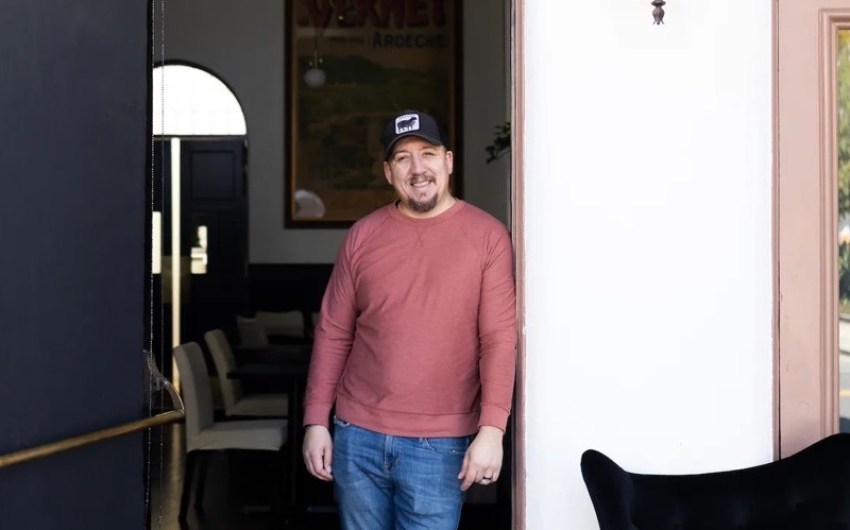
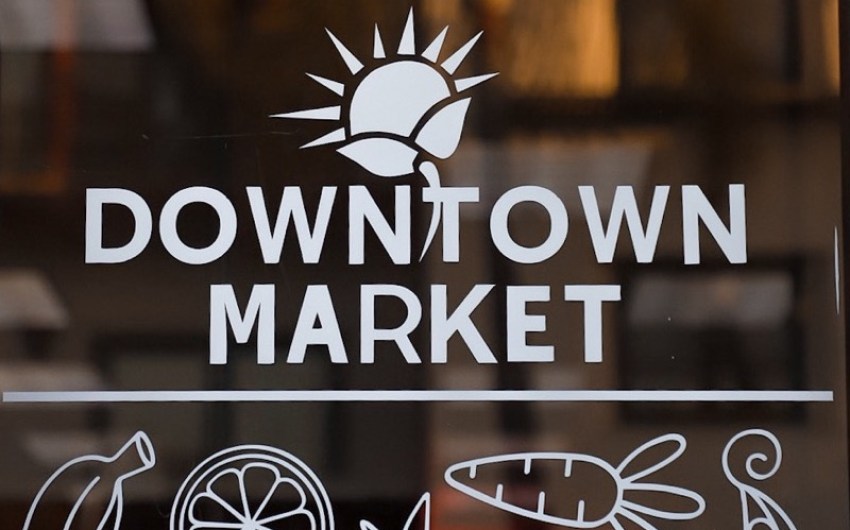
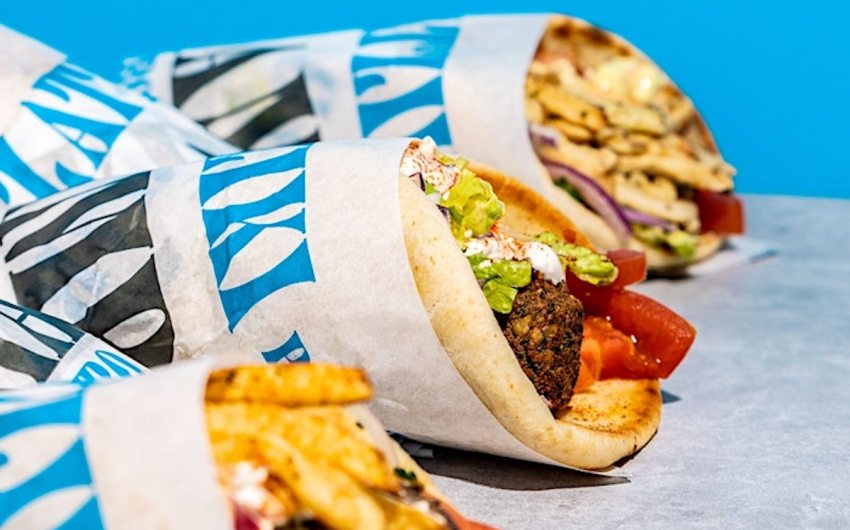







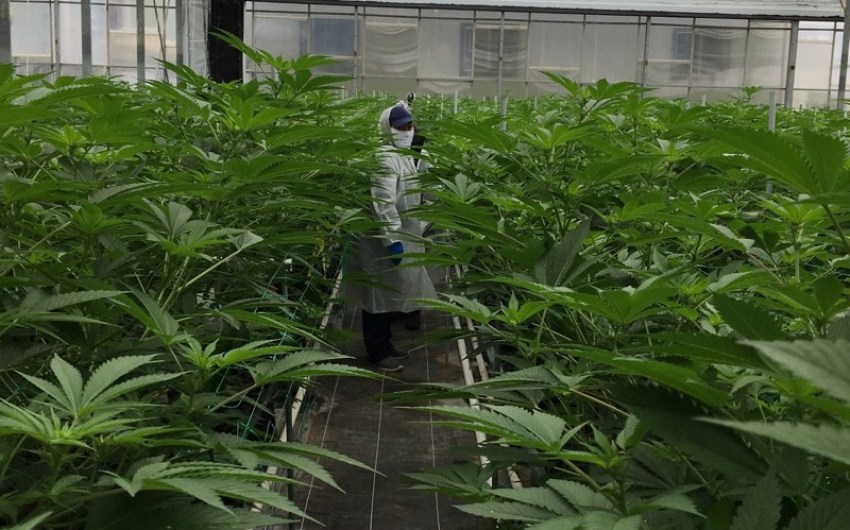













You must be logged in to post a comment.